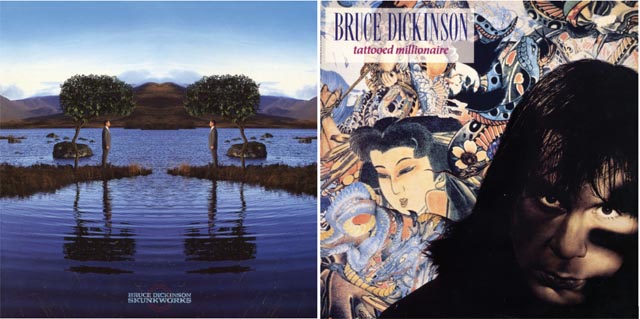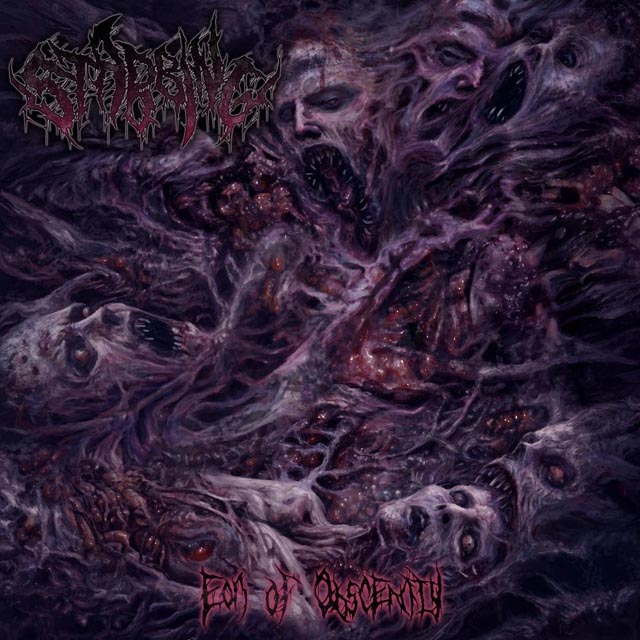 BITPOM.com contributer M. Lazar, a musician (check out September Mourning), writer and model, recently caught up with Roadrunner Sr. Dir. of A&R Mike Gitter about the industry. Here’s her interview:
BITPOM.com contributer M. Lazar, a musician (check out September Mourning), writer and model, recently caught up with Roadrunner Sr. Dir. of A&R Mike Gitter about the industry. Here’s her interview:
It is not often I get to pick the brain of someone who single handedly brought Bad Religion into our musical vocabulary, (not the case) (set the stage for generation Warped, or signed Glassjaw, opening the door for the screamo generation of bands like My Chemical Romance and The Used. Mike Gitter did just that and has signed a slew of others including the mighty Killswitch Engage. A gifted writer with an ear for up and coming talent, Gitter currently resides at Roadrunner Records as senior (director of) A&R. Signing new talent is only part of his job. There is a very parental vibe he disguises with a gruff voice when speaking of his younger bands. One of the few A&R left that truly nurture their talent, Mike Gitter demands respect.
M. Lazar: You started your career working on a label in the 90’s. The climate of the music industry has changed tremendously. What is the most significant change that you have seen on the business end?
I was hired at Atlantic in 1993. At the time I was a journalist and because of a very indie or punk rock background ended up writing about bands that mattered to me that ultimately grew into the mainstream bands of the day. The Rollins Band, Cro-Mags, Fugazi, Ministry and this band that a guy I knew from a Washington DC band called Scream played drums for Nirvana. Who the hell would think? So Atlantic first hired me as a consultant and I guess I did something right because they eventually gave me an office and a job. It was definitely the post-Nirvana and post-Green Day world. Everyone was looking for “that” band and I was hired for my expertise in that area. OK, so to answer the question, the business has changed. The medium has changed. Once we entered a digital age the paradigm shifted. The shift from analog to digital was suddenly open game for anyone to simply smash and grab — labels, movie companies weren’t prepared for it. The walls came tumbling down and it left the business in a very different place. Make no mistake, you can still sell music but you have to be more realistic about the game.
First off, the nature of record deals has grown more realistic. The million dollar record and publishing deals are a thing of the past. Huge advances are few and far between for young bands. The fat has been cut. Also, the relationship between artists and labels has changed. There are the much-discussed (profit sharing) deals which are ideally a cooperative effort between the artist and label sharing a few different income streams. For some more established artists it’s made more sense to strike marketing deals with distributors — more straight up cash in their pockets. The dividends of years of hard work.
The thing that scares the shit out me is how retail is literally evaporating before our eyes. Tower Records is gone. Virgin Megastores are drying up (ed note: after this interview, Virgin announced they would be closing all but three of their remaining US stores). In the UK, the Zavvi chain that bought up all the Virgin stores just went belly-up. It’s scary. The cool lil’ record store on the corner is becoming extinct! If it wasn’t for places like that would we have discovered that first Iron Maiden or Venom record? Probably not. Let’s face it, Best Buy is where most the world buys its records. I do. Granted, there is Amazon. I buy a lot of stuff from there. And iTunes has definitely had its impact. I just saw a post on BITPOM saying how great it was that some underground metal records were in the Top 200. OK, you’re talking about semi-established bands that are shifting like 3K on a debut week? Compared to just a few years ago, that scares me shitless. That’s no triumph. It just shows me that we are in a scary position and need to do some serious rethinking for our business to continue and flourish.
ML: It has been said in the industry that there are no more rock stars. What do you think about this? Is it an indirect result of the industry’s downward economic turn in general?
MG: Beyond the industry, I think in crappy times we need characters that embody that dissatisfaction. The villains. And by that, I’m talking in the most literal sense of the word. People who interrupt the status quo. Manson – yeah. But there’s also people like Gorgoroth’s Gaahl who are just as beyond the pale, albeit more culturally dangerous. This goes all the way back to Alice Cooper coming out of the 70’s; a time still damaged by Vietnam, Watergate. Culture’s malaise. It’s the same reason why a film like “Watchmen” is being so culturally embraced. We dig the Fantastic Four but Dr. Doom is so much cooler. Sure, it might be on a cult level, but why do think people are so fascinated by the mythology of characters like Burzum’s Varg Vikiernes? Guaranteed, an artist that will upset mom and dad is riding in on a pale horse even as we speak!
ML: Who do you view as an iconic rock star of the new generation and why?
MG: I’m gonna go with my man Corey Taylor. Not only does he assume the “superhero” role behind the mask in Slipknot. But, he also assumes a Clark Kent persona in Stone Sour. A great vocalist. A real personality. Corey Taylor is that man!
ML: You do A&R at Roadrunner. The bands you sign reflect a distinct style musically in the field of metal. Give us a description of the musical style you intend to curve the market towards with your signed acts.
MG: Leaders not followers. Whether they be Killswitch or Opeth, these are the bands that create what so many others try and emulate. I’ve always been a student of all things heavy. And that doesn’t extend to metal either. Regardless, it would be incredibly pompous to say that I can change the course of mighty rivers! The biggest thing I hope to foster is that originality. It’s in the DNA of the people I work with from long-time heroes like Dave Mustaine all the way to the guys in Mutiny Within. And of course, these are some very talented people. Can’t say I work with a bunch of hacks, that’s for sure.
ML: Roadrunner was founded as primarily a heavy metal based label. Do you think the genre might saturate the market even more in the future?
MG: Metal never goes away. Sometimes it’s fashionable. Sometimes it’s not. Think back to the grunge years when metal was just about the uncoolest thing it could be — well, here comes Pantera to burn that wall down. But the fans were always there. Who was buying Ozzy, Prong and Megadeth records all through that time? Metal fans are loyal. They stick by their artists from the early days and still buy the records when those artists enter the elder statesmen status of a band like Motorhead. Because metal inspires that loyalty, you have artists that can grow from record to record and fans that follow that. In the case of Roadrunner, whether the band is Deicide or Killswitch, no matter how popular a band is at a certain time, there’s always metalheads that will stick by them though thick and thin. I guess one thing metalheads can give themselves credit for is our love of physical product. We’re a loyal bunch. Sure, I have thousands of records on my iPod but I will still buy the album as long as I have that option. You should see my basement!











